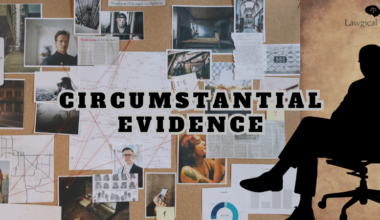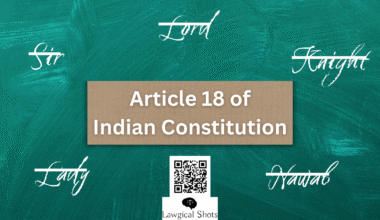Nobody is born with the ownership of a property, and nobody takes anything along when death approaches. There are legal procedures followed to transfer the ownership or other interests in a property from one person to another. Mr. Aakash poddar (Adv) during his internship at Lawgical Shots, seeks to explain the various modes of transfer of property under the Transfer of Property Act, 1882.
Modes of Transfer of Property
The Transfer of Property Act, 1882 is the civil law which lays the various modes of transfer of property, namely:
1. Sale
2. Mortgage
3. Gift
4. Lease
5. Exchange
6. Actionable Claims
Here, we seek to explain one by one what the particular modes of transfer under Transfer of Property Act mean and how they are brought into effect.
SALE
Sale is a transaction in which one party sells and another party buys the goods and hires the services. There is transfer of full ownership of the property in sale. Thus, according to the law, the subject matter of sale is any property, whether movable or immovable. There are two parties in a Sale – one is the Seller and another one is Buyer. Sale is completed when the seller receives the consideration and the buyer gets the possession. Thus, in short, we can say that in sale, Consideration is must. Without consideration, sale is incomplete.
In simple words, sale is the transfer of ownership in exchange of goods or services for a price. If there is no consideration, then sale cannot be executed between the parties. After sale, the registration of property is compulsory if the value of property is more than 100 rupees. The Sale may be present or in future date as well.
MORTGAGE
The word Mortgage is explained under section 58 to 104 of the Transfer of property Act, 1882. In this mode of transfer under TPA, the interest of the property which is immovable shall be transferred to the mortgagor for the purpose of securing payment of the advance money or advance loan by an existing or future debt or the performance of a contract which may give rise to pecuniary liability.
There are two Parties in a mortgage: Mortgagor and Mortgagee. A mortgagor is called transferor or borrower also, whereas, transferee is called a mortgagee or lender. Mortgage can be effective by registered instrument called mortgage deed.
There are various kinds of mortgage:
a) Simple mortgage
b) Mortgage by conditional sale
c) Usufructuary mortgage
d) Mortgage by deposits of title deeds it is also called equitable mortgage.
e) Anomalous mortgage.
Thus, we can say that a mortgage takes place without delivery of possession of immovable property. Mortgagor always binds personally to the mortgage to pay the debt. It can be created only by the act of parties.
GIFT
The concept of gift has been defined under section 122 to 128 of the transfer of property Act 1882. Gift is the transfer of certain existing movable or immovable property which is made voluntarily and there is no consideration present in the gift. There are two persons involved in the transfer of property through gift, one is the donor and another one is the donee.
The Donor is the person who can give the gift to another and one who accepts the gift from the donor is the donee. Acceptance of the Gift shall be made during the lifetime of the donor. If the donor or donee dies before such acceptance, then validity of the gift shall be void. If the parties for a gift, either donor or donee, dies before the acceptance of the gift, then the gift is void.
According to the section of 123 of the Transfer of Property Act, 1882 “a gift of immovable property must be made by a registered instrument signed by or on behalf of the donor and attested by at least two witnesses”.
LEASE
The word Lease is explained under section 105 of 1882 Act. Lease is made on the immovable property and it is a transfer of a right to enjoy property. The transfer takes place for the enjoyment of property and the possession of property given to the transferee only. The time period of Lease is for a certain period as specified. There are two Parties to a lease are: landlord or lessor, and lessee. Lessor is called transferor whereas transferee is called lessee.
EXCHANGE
The concept of exchange is defined under section-118 of Transfer of property Act, 1882. Exchange simply means barter system. Thus, we can say that if a person needs rice and another person needs the shoes, then in the market, they exchange their goods in terms of exchange.
As per the section 118, Exchange means when the two persons mutually transfer the ownership of one thing for the ownership of another, neither or both things being money whose transaction is called an exchange.
ACTIONABLE CLAIM
Sections 130 to 137 of the Transfer of Property Act 1882 define the concept of Actionable claim. Actionable claim means,
a) A claim to any debt
b) A claim to any beneficial interest of immovable property which is not in the possession of buyers.
Thus, we can say that Actionable claims are the claims to unsecured Debts.
Sheo Gobind Singh v. Gauri Prasad (1924)
In this case, it was held by Patna High Court is that, arrear of rent accrual constitutes a debt due from tenant to landlord so this comes under the definition of Actionable claim.
Thakardas v. Vishindas (2014)
In this case the Gujarat High Court held that, a partner’s right to sue for accounts of dissolved partnership is an actionable claim, being a beneficial interest in movable property not in his possession.








